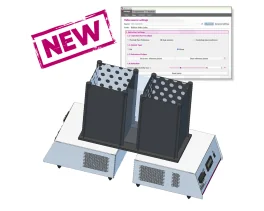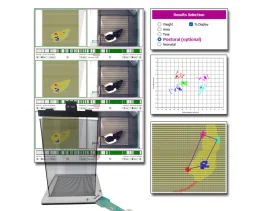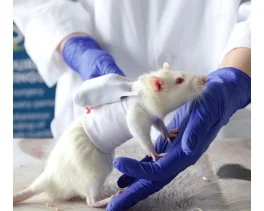Authors
Ortega SB, Kong X, Venkataraman R, Savedra AM, Kernie SG, Stowe AM, Raman L
Lab
Departments of *Neurology and Neurotherapeutics and Pediatrics, University of Texas Southwestern Medical Center, Dallas, Texas, USA;
Journal
J Leukoc Biol.
Abstract
pCH is an important risk factor for brain injury and long-term morbidity in children, occurring during the developmental stages of neurogenesis, neuronal migration, and myelination. We show that a rodent model of pCH results in an early decrease in mature myelin. Although pCH does increase progenitor oligodendrocytes in the developing brain, BrdU labeling revealed a loss in dividing progenitor oligodendrocytes, indicating a defect in mature cell replacement and myelinogenesis. Mice continued to exhibited hypomyelination, concomitant with long-term impairment of motor function, weeks after cessation of pCH. The implication of a novel neuroimmunologic interplay, pCH also induced a significant egress of infiltrating CD4 T cells into the developing brain. This pCH-mediated neuroinflammation included oligodendrocyte-directed autoimmunity, with an increase in peripheral myelin-specific CD4 T cells. Thus, both the loss of available, mature, myelin-producing glial cells and an active increase in autoreactive, myelin-specific CD4 T cell infiltration into pCH brains may contribute to early pCH-induced hypomyelination in the developing CNS. The elucidation of potential mechanisms of hypoxia-driven autoimmunity will expand our understanding of the neuroimmune axis during perinatal CNS disease states that may contribute to long-term functional disability.
BIOSEB Instruments Used
Aron Test or Four Plates Test (LE830),Rotarod (BX-ROD)
Source :

 Douleur - Allodynie/Hyperalgésie Thermique
Douleur - Allodynie/Hyperalgésie Thermique Douleur - Spontanée - Déficit de Posture
Douleur - Spontanée - Déficit de Posture Douleur - Allodynie/Hyperalgésie Mécanique
Douleur - Allodynie/Hyperalgésie Mécanique Apprentissage/Mémoire - Attention - Addiction
Apprentissage/Mémoire - Attention - Addiction Physiologie & Recherche Respiratoire
Physiologie & Recherche Respiratoire




































 Douleur
Douleur Système Nerveux Central (SNC)
Système Nerveux Central (SNC)  Neurodégénérescence
Neurodégénérescence Système sensoriel
Système sensoriel Système moteur
Système moteur Troubles de l'humeur
Troubles de l'humeur Autres pathologies
Autres pathologies Système musculaire
Système musculaire Articulations
Articulations Métabolisme
Métabolisme Thématiques transversales
Thématiques transversales Congrès & Meetings
Congrès & Meetings 